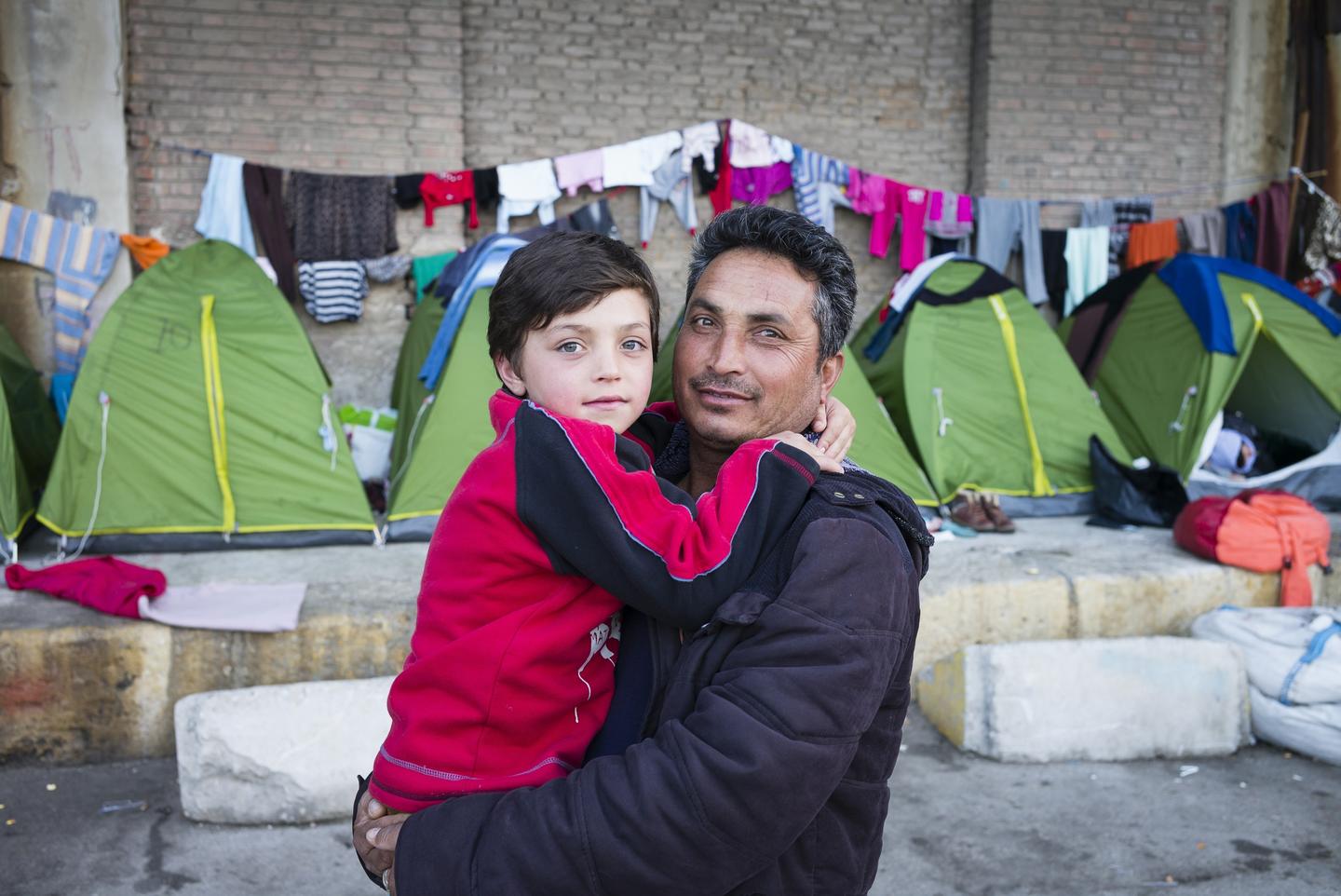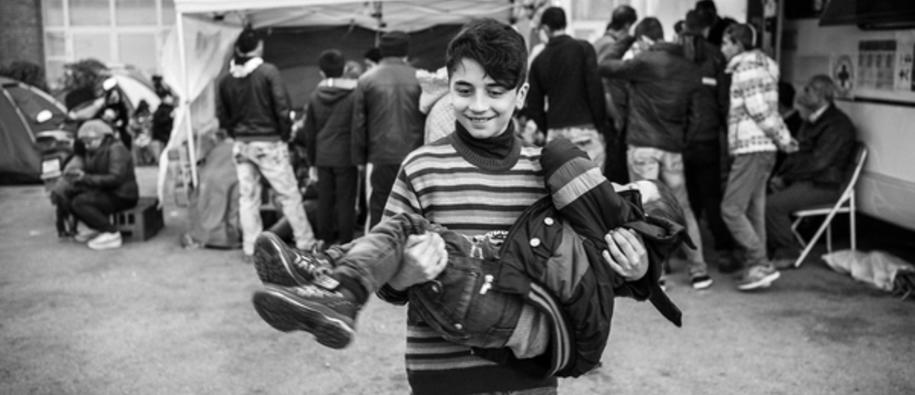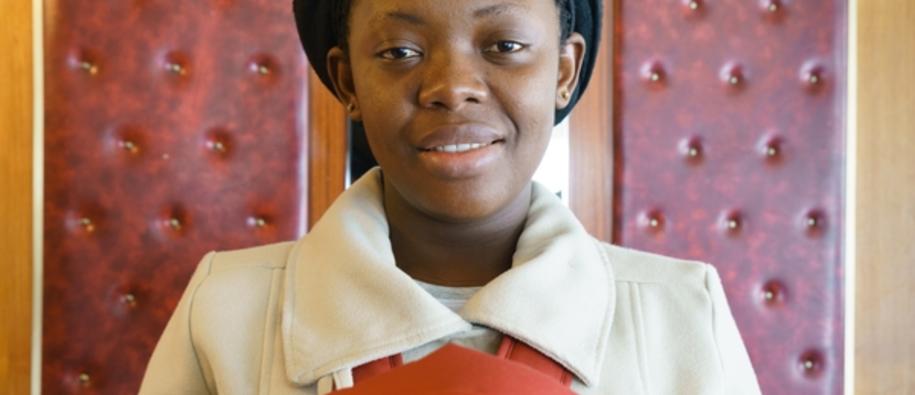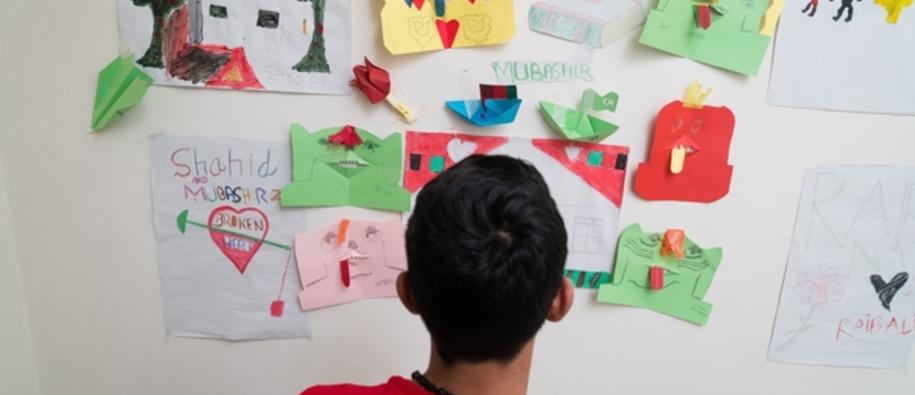Over 1.2 million asylum seekers applied for international protection in Europe in 2015, more than double the number in the previous year.[1] This large-scale arrival of migrants and asylum seekers has put a strain not only on individual asylum systems but also on the Common European Asylum System as a whole.
The EU is working to improve the European response. Iceland, Liechtenstein and Norway contribute to these joint efforts through the EEA and Norway Grants as well as through other national and international channels. This support is provided through the UN system, NGOs and EU bodies like ‘Frontex’ – the EU Agency which manages cooperation between national border agencies.
What are we doing?
Two dedicated asylum programmes are in operation. These are designed to strengthen the capacity of the Greek asylum system and address urgent welfare and reception needs. Particular attention is given to unaccompanied asylum seeking children. Given the severity of the situation, in agreement with the Greek government, we increased the funding to the asylum programmes in 2015 by €3.3 million. This brings the total allocation to €24.2 million. The Norwegian Directorate of Immigration (UDI) has worked closely with the Greek authorities in developing and implementing the programmes.
Securing the EU’s external borders and managing migratory flows is also an important aspect of our work. A total of €31 million under the Norway Grants is being spent on strengthening police cooperation in the Schengen area and combating cross-border crime. A further €6.5 million from the NGO (non-governmental organisation) programmes supports migrant welfare and integration projects in various countries.
What has been achieved?
Building capacity
Weaknesses in the Greek asylum system have long been apparent. However, in a country already hit hard by economic crisis, the influx of 2 000 - 3 000 new arrivals each day[2] has stretched state structures to the limits. The situation too is rapidly evolving. Greece had been viewed as a transit country, but as other European countries grappled with the mass movement of people, some tightened border controls. This left many migrants stranded in Greece.
In this context, a grant of €5 million to the Greek Asylum Service (AS) has proved invaluable. This has covered extra staff, interpreters and psychological support services. In 2015, 9 360 decisions were made in asylum cases. While shortcomings are still apparent, this is a significant rise compared to the previous year.
“The EEA funding is providing for the entirety of our interpretation. It also covers a number of staff. We estimate that the extra personnel have contributed to the rise in the number of cases processed at a 20-25% rate,” explains Maria Stavropoulou, Director of the Asylum Service.
“Essentially, without this project, the AS would not have been able to operate. Without interpretation we can’t function. And without the extra case workers, we wouldn’t be able to process as many people or would have longer waiting times.” Read more
Snapshot of results
- 50 extra case workers and 80 interpreters recruited*
- 2 social workers and 1 psychologist hired
- Information leaflet in 21 languages produced
*Indicates total figures from 2014 and 2015
Reception support
Fast identification of asylum seekers and protection of the most vulnerable, requires that adequate first reception and screening facilities are in place. The support to the First Reception Service (FRS) screening centre operations at Fylakio, at the land border between Turkey and Greece, and Lesvos, one of the main island entry points for migrants, is helping the Greek authorities to manage the influx and improve reception.
The centre in Fylakio is the first of its kind in Greece. A grant of around €6 million has helped to establish proper registration and support services at the centre. Arrivals now receive clear information about their rights to asylum, basic welfare and medical care. This has been an important step towards achieving a national asylum system that meets international standards.
Another key element has been the close cooperation with the Norwegian partner, UDI. UDI advises on the handling of asylum requests and the running of reception centres. This has significantly contributed to strengthening the competence and capacity of the Greek authorities.
“The unstable economic and political situation combined with the massive influx of migrants has proved incredibly challenging but we’ve stayed the course. We’ve advised when programmes have had to adapt and we’ve created synergies with other stakeholders, like the European Asylum Support Office. This has helped to strengthen migration management,” said UDI Senior Adviser, Yiannis Tavridis.
Snapshot of results
- 7 874 migrants received shelter, food, clothing and medical care
- 7 874 migrants informed of their rights
- 413 accompanied children accommodated
All total figures from 2014 and 2015
New approach through civil society
The shortage of reception places has long been a deficiency of the asylum system in Greece. This is particularly acute for vulnerable groups like unaccompanied children, single mothers and the disabled. Of the almost one million migrants and refugees who reached Greece in 2015, the authorities registered around 2 500 minors travelling alone.[1]
€6.9 million has been channelled to NGOs to run four reception centres for such groups. The International Organization for Migration (IOM) is responsible for the overall management of the programme. As well as basic welfare, the centres offer educational activities, psychological support, medical care and legal assistance.
“The impact of the programme cannot be underestimated, particularly for the children on their own. There are only around 400 places nationwide for minors. The programme is providing a quarter of these,” said Natassa Arapidou, IOM Project Coordination Assistant.
Running accommodation facilities is a very new field for civil society organisations in Greece. UDI has been closely involved:
“We have transferred best practices from Norway and conducted quality controls. The NGOs and IOM Greece have gained valuable experience from this new approach,” said Yiannis Tavridis, UDI Senior Adviser.
There have been challenges. It can be difficult to convince unaccompanied teenagers to stay in the centres and go through the proper procedures, rather than try to move on towards their destination. Close cooperation with the Guardianship Network developed by the Greek humanitarian NGO, METAdrasi, has been effective here. METAdrasi runs two projects under our NGO programme in Greece. The guardians act as a liaison between the child, the various agencies and the reception centres. Read more.
Snapshot of results
- 272 reception places secured. 120 of those for unaccompanied children
- 1 755 unaccompanied children and 121 lone mothers given shelter
- 380 other vulnerable asylum seekers given shelter
- Easy-to-use ‘survival guide’ produced for asylum seekers and refugees
More
This is just a snapshot of some of the results and stories. More detailed information on the asylum programmes, results and project stories is available here.
[1] Eurostat (2015) First time asylum applicants registered in EU member states 2014/2015
[2] UNHCR (2016)



